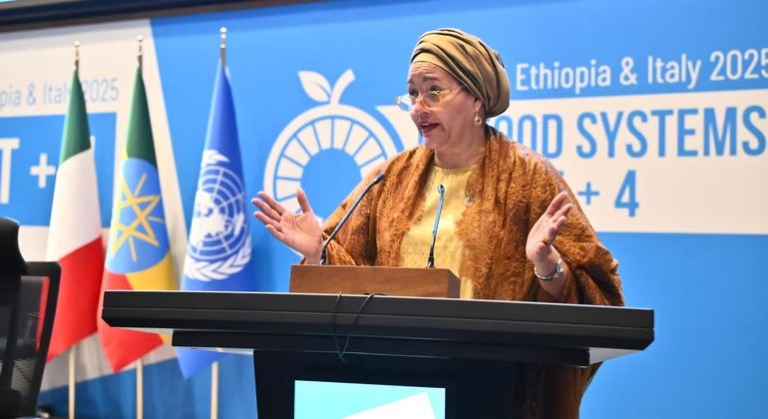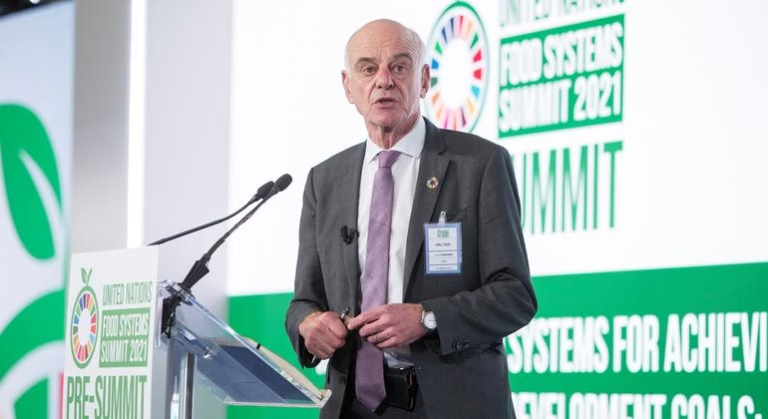As digital connectivity increases, with over 5.5 billion individuals online and active on social media, platforms have become integral to human interaction, according to UN Women. However, these platforms are also becoming tools to disseminate misogyny and hatred.
Once limited to niche online forums, the manosphere’s influence now extends to school environments, workplaces, and personal relationships.
According to Kalliopi Mingeirou, Chief of the Ending Violence Against Women and Girls Section at UN Women, there is a growing trend of young men seeking guidance from online influencers regarding topics like dating, fitness, and fatherhood.
In search of validation, these individuals often encounter communities that promote distorted views of masculinity and fuel misogynistic attitudes.
Validation Through online content
Ms. Mingeirou pointed out to UN News that these online spaces exploit insecurities and the need for validation, frequently sharing content that is dismissive of women and girls’ societal roles and frequently misogynistic.
According to the Movember Foundation, a partner of UN Women, two-thirds of young men regularly engage with masculinity influencers online. While some content is supportive, a lot promotes extreme language and sexist beliefs, reinforcing the notion that men are victims of social change and modern-day feminism.
The latest UN Secretary-General’s report notes that groups within the manosphere are unified in their rejection of feminism and their depiction of women as manipulative or dangerous.
These narratives are increasingly amplified by social media algorithms that favor provocative and polarizing content.
Impact of Misogynistic content
Ms. Mingeirou emphasized that anonymity online facilitates the spread of sexist and hate speech. This not only harms the mental and physical health of individuals but also poses a significant threat to democracy.
She further stressed that these environments discourage women from participating online, due to the risks and threats they face.
Underlining that harmful content fosters anxiety and damages both boys and men, Ms. Mingeirou advocated for the establishment of safe online spaces where individuals can seek guidance without encountering damaging material.
Beyond Online
The manosphere’s dangerous narratives are increasingly pervasive in the broader cultural and political landscape, triverializing gender-based violence and reinforcing harmful gender roles.
In severe instances, these beliefs intersect with other forms of radicalization such as racism, homophobia, and authoritarianism. Online misogyny can become offline misogyny.
Ms. Mingeirou mentioned evidence that connects perpetrators of violent incidents with engagement in misogynistic online platforms, indicating a broader risk for society.
These communities, although diverse, generally present a unified view of predicting feminists as perilous, women as manipulative, and men as victims. Their support is growing, particularly among young men, amplified by algorithms promoting sensational and extreme content. The manosphere’s stories are now shaping societal thinking, voting behaviors, and interpersonal interactions.
Combating the issue
In recognition of the 30th anniversary of the Beijing Declaration and Platform for Action, UN Women regards the growth of online misogyny as a challenge to gender equality progress.
In response, UN Women is escalating efforts to counteract toxic digital environments via comprehensive strategies including:
- In-depth research and data collection concerning the spread and effects of online-toxic behavior.
- Support mechanisms for those affected by online harassment.
- Educational campaigns targeting toxic masculinity.
- Programming specifically for youth to foster digital resilience and gender equality.
- Advocacy for media to play a more active role in addressing this issue.
Education for Prevention
Education remains one of the most effective means to combat misogynistic ideologies. Dialogues with children and teens about gender equality, healthy relationships, and responsible digital engagement are key to preventing harmful attitudes from forming.
“It’s about creating a world where boys and girls grow up free from the toxic influences of harmful gender expectations,” Ms. Mingeirou concluded.
Source: https://news.un.org/feed/view/en/story/2025/06/1164531





